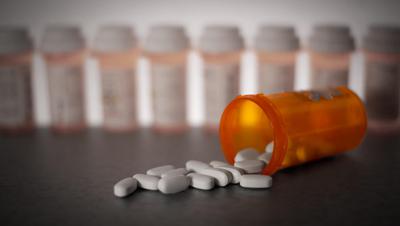Work From Home Impact on Drug Testing

There are many aspects of both our work and personal lives that have changed since the start of the coronavirus pandemic. Many non-essential companies and workers quickly pivoted into remote work, otherwise known as "Work From Home" or WFH. More than 40 million Americans have lost their jobs. Companies are dealing with many critical changes that they are struggling to adapt to. Ensuring that long-standing employment drug testing policies are adjusted for a dramatically changed work environment is one of those crucial matters.
How COVID-19 is Affecting Employment Drug Testing
For companies that drug test employees in normal times, the COVID-19 pandemic presents some challenges. The act of drug testing itself raises questions about safety, personal protective equipment, and social distancing. Fortunately, most drug tests are performed in health care clinics which are well prepared to manage these risks. Most drug testing locations remain open, but employees need to be prepared to come in wearing masks and follow strict social distancing protocols. The tests themselves have not changed, but the employee may sit further away from the technician when doing the paperwork. Collection sites should be sanitized in accordance with OSHA guidelines, and these safety precautions should be clearly communicated to employees so they're aware of what measures are being taken to protect their safety.
Drug Testing Remote Workers
Because of the sudden and dramatic shift to remote work, there is clearly a risk of increased drug and alcohol use for people who are not used to being home all the time. The increased economic and health-related strain combined with the closure of most social gathering places has led to a 55% rise in alcohol consumption compared to the same time last year. Drug use may be increasing as well for the same reasons. Therefore, it's crucial that companies continue to follow their regular drug testing guidelines, to make sure that stress-related consumption doesn't impact their workplace.
Drug testing remote employees who suddenly find it harder to resist using drugs presents the likelihood that staff may push back. To clear up misconceptions, employers should restate to WFH staff any regulations that govern their industry. They should also remind staff that their drug and alcohol policy remains in effect during any WFH period. It should be extremely clear to employees what the company policy is, as well as the consequences for non-compliance.
DOT Drug Testing during COVID-19
Fortunately, companies that test their employees according to governmental regulations aren't navigating this alone. Government agencies like the Department of Transportation have recently put out updated guidelines for DOT drug testing during COVID-19.
DOT guidance advises companies, employees, and service agents about what to do if random drug and alcohol testing is unable to take place, as well as the protocol for how to document situations where a test has been delayed or refused because of health concerns related to COVID-19 .
It is not unreasonable to imagine that an employee that has a chronic disease or is in a higher risk category for COVID-19 may be unwilling to go to a lab or break social distance guidelines in order to submit a breathalyzer or urine sample. If this happens, it is a good idea for employers - even non-DOT companies - to refer to these well-thought out protocols to guide their response.
Determining whether an employee refuses a test or simply leaves a collection site for valid reasons is always a tricky area for employers, and the pandemic only makes it more complicated. DOT's guidance with respect to refusals, however, is substantially unchanged: "It is the employer's responsibility to evaluate the circumstances of the employee's refusal to test and determine whether or not the employee's actions should be considered a refusal."
Keep in mind that staff who are laid off for a period of more than three weeks may be required to get a pre-employment DOT drug test when returning to work, as if they were a new hire.
Drug Testing Furloughed Employees
Employees who are put on furlough cannot be tested by the employer while they are not working. However, when employees are brought back after being furloughed for a month or month or more, they are often treated like new hires. Most companies, in fact, ensure that their employee reinstatment process includes all of the usual onboarding requirements, pre-employment drug testing among them.
Everyone hopes that the economy returns to normal in a rapid fashion. Nevertheless, it is important that companies - and the people they hire - understand what is at stake. Despite the fact that vastly more people are working remotely and/or being furloughed or outright laid off, it is clear that one thing has not changed in corporate America: drug use is still not tolerated, and if you want a job, you are going to get tested.




